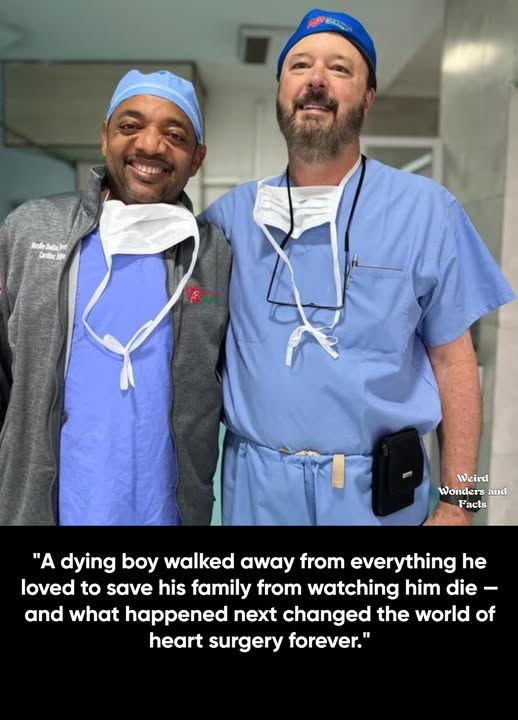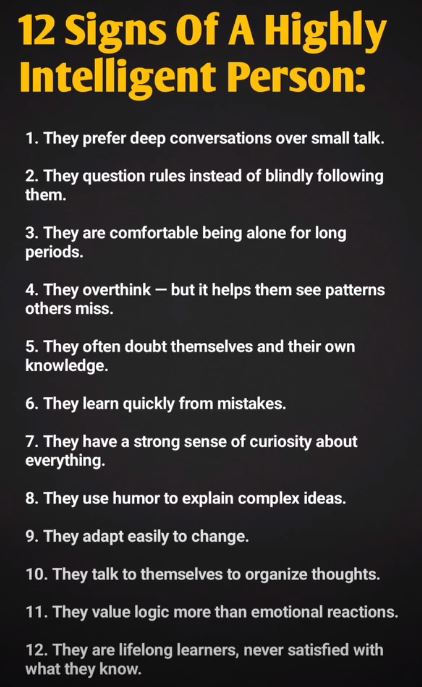
Mesfin and Allen – A Story of Courage and Compassion

A dying boy walked away from everything he loved to save his family from watching him die — and what happened next changed the world of heart surgery forever.
Mesfin Yana was born in 1985 in Shafina, a tiny village in southern Ethiopia. There were no cars, no electricity, no running water. His family were coffee farmers. He had thirteen brothers and sisters. And by every measure that mattered to him, he was happy.
Then, around the age of ten or eleven, he got a sore throat. It seemed like nothing. But in a place with no hospitals and no antibiotics, nothing can become everything. That untreated strep throat quietly turned into rheumatic fever, and rheumatic fever slowly destroyed the valves of his heart.
By the time Mesfin was fifteen, he was dying.
His parents took him to a local doctor, who could only deliver the truth: the boy needed heart surgery, and there was no heart surgeon in the entire country for nearly a hundred million people. There was nothing anyone could do.
So Mesfin made a decision that no child should ever have to make. Rather than force his family to watch him waste away, he left home. He walked miles from his village to the city of Awassa, alone, sick, and barely strong enough to stand. A local shelter run by Mother Teresa’s Missionaries of Charity took him in, and later transferred him to another shelter in Ethiopia’s capital, Addis Ababa.
There, his condition continued to worsen — until one day, an American doctor named Rick Hodes walked through the door. Dr. Hodes, an internist who had spent decades caring for the poorest patients in Ethiopia, examined Mesfin and diagnosed him with severe congestive heart failure. The boy’s heart was failing. But Dr. Hodes refused to accept that as the ending.
He reached out to his colleague and close friend in Atlanta — cardiologist Dr. Allen Dollar — and together they arranged for Mesfin to fly to the United States for open-heart surgery. At Piedmont Heart Institute, cardiothoracic surgeon Dr. Jim Kauten repaired Mesfin’s damaged mitral valve.
The surgery was a success. Mesfin returned to Ethiopia, and for a brief, beautiful moment, it seemed like the story had its happy ending.
It didn’t. Not yet.
Six weeks later, Mesfin developed a dangerous infection called endocarditis — an inflammation of the heart lining triggered by a dental procedure he’d had while in the U.S. His repaired valve was being destroyed all over again. Dr. Hodes contacted Dr. Dollar, and once more, the two doctors pulled Mesfin back to Atlanta.
This time, during surgery, the team discovered the valve was beyond saving. They replaced it with a mechanical one — a device that would keep him alive but required lifelong blood thinners and constant medical monitoring. The kind of monitoring that simply did not exist in rural Ethiopia.
Mesfin could not go home.
Dr. Allen Dollar called his wife, Shelly, from the hospital. “I think we’re going to have another kid,” he said.
The Dollars were no strangers to opening their home. They already had biological daughters and adopted children from China, El Salvador, and Mexico — many with serious health conditions. Mesfin joined their family in Atlanta, eventually taking their last name. He later said it reminded him of home: “This is as large a family as I had back in Ethiopia.”
And then, quietly, something remarkable began to happen.
Mesfin studied harder than anyone the Dollars had ever seen. He learned English, caught up to his peers, and threw himself into academics with a focus that stunned his teachers. He enrolled at Georgia State University to study respiratory therapy. There, he met his future wife, Iyerusalem. They married and had two sons.
But Mesfin wasn’t done. He moved his young family to Texas and trained as a cardiac perfusionist at the Texas Heart Institute — learning to operate the heart-lung machine, the very device that had kept him alive during his own surgeries. He eventually landed a position at the Mayo Clinic in Minnesota, where he now runs heart-lung machines during some of the most complex open-heart surgeries performed anywhere in the world. His wife works there too, as a cardiac sonographer.
The first time Mesfin assisted in surgery, his patient was a teenage girl from Ethiopia. She was terrified, crying on the operating table. He walked to her bedside and spoke to her in Amharic. “I had the same surgery,” he told her gently. “Things are going to be just fine.”
Years later, he still sees himself in every patient. “I was on that same operating table,” he says.
Today, Mesfin flies back to Ethiopia regularly alongside Dr. Jim Kauten — the very surgeon who once opened his chest to save his life. Together, through the nonprofit Heart Attack Ethiopia, they perform life-saving heart surgeries for patients who, like Mesfin once was, have no other option. He serves not only as a perfusionist but as an interpreter between Ethiopian and American medical teams, bridging two worlds that shaped him.
He also did something else that speaks to who he truly is: he helped bring his biological parents and several of his siblings to the United States, reuniting the family he once walked away from to protect.
“I’m always grateful,” Mesfin says. “I’m grateful for my family, for just being in the United States. It’s a resurrection for me. You know, I was once lost, dead, and I was resurrected and I’m living a new life.”
His adoptive father, Dr. Allen Dollar, puts it simply: “He has retained this spirit of gratitude. He has never lost sight of what his life could have been, and all the people along the way.”
Mesfin Yana Dollar was once a dying boy who walked away from home so his family wouldn’t have to watch him go. Today, he stands in operating rooms at one of the world’s greatest hospitals, keeping hearts beating with the same machine that once kept his own alive.
Some people are saved so they can save others. Mesfin is living proof.
Quantum Encryption

Quantum communication is no longer a physics thought experiment. It’s being deployed right now, and it’s going to change who controls secrets, who wins wars, and who you can trust online.
Finish reading: https://open.substack.com/pub/rwmalonemd/p/the-unbreakable-message
12 Signs

Eating Sequence

This changes everything and it costs zero dollars. Researchers gave people the exact same meal; same ingredients, same calories, same portions. The ONLY thing they changed was the order people ate them in. Vegetables and protein first, carbs last. Blood sugar spike was dramatically lower. Insulin demand dropped. Same meal. Different sequence. Different metabolic outcome.
Tonight: eat your salad first. Protein second. Carbs last. Watch what happens.
Cacao Butter

Unlike other saturated fats, Stearic Acid (found in cacao butter and high-quality dark chocolate) triggers a process called Mitochondrial Fusion. This is where your cells’ “power plants” merge together to become more efficient and clear out “cellular junk.” Eating a small square of 90% dark chocolate doesn’t just provide antioxidants; it provides the specific fat signal needed to keep your brain’s energy production from aging.
I use Cacao Butter in these two products, If you like fruit with your dark chocolate: https://www.healthelicious.com.au/ChocoFruit-Slice.html
If you prefer macadamia nuts: https://www.healthelicious.com.au/ChocolateAndMacadamiaRockyRoadSlice.html
Chill To Heal

Scientists found 7 locations on Earth where the body repairs itself 2–4x faster — without medicine
(No, it’s not mountains or the sea.) ?
1. A neuroecologist told me: “The body repairs fastest where stimulus density collapses.” First location: old monasteries and inner courtyards. Thick stone + enclosed geometry cut auditory load by up to 80%. MRI data shows the brain enters “maintenance mode”: increased glymphatic clearance, faster inflammation drop.
2. Salt caves (halotherapy chambers). Not wellness BS — micro-ionized NaCl particles reduce airway resistance and drop cortisol by 22%. Hospital recovery pilots in Poland use them to accelerate post-viral healing.
3. Bee-house apiaries. Micro-vibration from thousands of wings creates 110–140 Hz resonance — the same frequency range physiotherapists use to relax smooth muscle. In Romania, cardiovascular patients recover twice as fast after sessions.
4. Cold spring basins (not hot). Springs under 12°C trigger a repair cascade: nitric oxide release, mitochondrial upshift, immune cell redistribution. Japanese clinics use this protocol for autoimmune disorders.
5. Ancient stone caves with narrow mouths. CO2 slightly elevated, oxygen stable, humidity constant — perfect conditions for respiratory recalibration. “Your lungs work 30% less,” a speleologist said. “Energy goes to repair.”
6. Silence deserts at night (Wadi Rum, Atacama plateaus). Near-zero sound waves reduce amygdala firing. Soldiers with stress injuries recovered 3–4x faster after night sessions there.
7. Moss-dense old-growth forests. They release beta-pinene and forest ions that activate NK cells and suppress chronic inflammation. In South Korea, post-surgery recovery is 35% faster. “It’s not relaxation,” a clinician said. “The immune system finally stops staying on guard.”
Conclusion: all seven places do the same hidden thing — they remove the constant micro-threat signals your nervous system is drowning in. Less noise, steadier air, predictable humidity, cleaner frequency bands. When your brain stops spending energy on scanning and bracing, the body reallocates that budget to repair: immunity, tissue regeneration, respiration, sleep architecture.
Same Brain Symptoms, Sharper Mind – Neuroplasticity
In the 1980s, researchers studied a group of elderly nuns and discovered something that baffled the scientific community.
Some of these women had brains riddled with the plaques and tangles of Alzheimer’s, but showed zero symptoms.
Their secret? They never stopped challenging their minds.
It was one of the first big clues that your brain can rewire itself at any age. Scientists call it neuroplasticity, and it’s one of the most fascinating areas of brain research I’ve come across.
I think about this a lot. My grandmother was my best friend. She delivered newspapers well into her 80s and was still tap-dancing at 90. When dementia eventually took hold, she stopped recognising me. She’d look at me and say, “who’s that girl?”
So anything that can help protect and strengthen the brain? I’m paying attention.
Link to Video: https://brainbundle.thesacredscience.com/register/
Linda Hamilton as Sarah Connor

Two weeks after giving birth, she started a training regimen so brutal that Arnold Schwarzenegger watched her and said what he saw was “extraordinary“ — and it created the most iconic female action hero in film history.
In 1984, Linda Hamilton walked onto the set of a low-budget science fiction film and played a waitress named Sarah Connor. The character was ordinary by design — a young woman living a quiet life in Los Angeles who is suddenly hunted by an unstoppable cyborg from the future. Sarah spends most of the film terrified, running, screaming, and barely surviving. She is not a warrior. She is everywoman — caught in a nightmare she can’t understand.
The film was called The Terminator. It was directed by a young James Cameron on a modest budget. Nobody expected it to become a phenomenon. But it did — grossing over $78 million worldwide and launching one of the most successful franchises in cinema history.
When Cameron called Hamilton back for the sequel seven years later, he had a radical vision. Sarah Connor would be completely different. The terrified waitress was gone. In her place would be a woman forged by knowledge of the coming apocalypse — someone who had spent the intervening years preparing for a war that only she knew was coming. A woman who had been institutionalized for telling the truth. A woman who had become, in Cameron’s own words, “the Terminator of the second film, at least on a psychological level.“
Hamilton didn’t just agree to this transformation. She demanded it. She wanted Sarah Connor to be just as physically capable and dangerous as Schwarzenegger’s cyborg. She wanted to do her own stunts. She wanted the audience to believe, without question, that this woman could fight, shoot, and survive anything the future threw at her.
And then she did something that still amazes people who hear it for the first time.
Just two weeks after giving birth to her son Dalton, Linda Hamilton began training.
For thirteen weeks — and continuing throughout the entire production — she trained three hours a day, six days a week. Her regimen was punishing: running, biking, swimming, stair climbing, free weights, trampoline drills, walking lunges, and extensive abdominal work, all under the guidance of personal trainer Anthony Cortés. She shed twelve pounds of fat and built visible, functional muscle that redefined what audiences expected a woman to look like on screen.
But that was only half of it.
Hamilton also hired Uzi Gal, a former Israeli special forces commando, to train her in military tactics and weapons handling. She learned judo. She learned how to load clips, change magazines, clear a room upon entry, and verify kills. She trained until she could bench press eighty-five pounds for repetitions, run eight miles, and pump-load a twelve-gauge shotgun with one arm.
When Schwarzenegger — a man who had spent his life in the world of physical fitness and bodybuilding — watched Hamilton train, he was genuinely impressed. He later recalled thinking that what he witnessed was extraordinary, even by his standards.
The result, when cameras rolled on Terminator 2: Judgment Day in 1991, was something Hollywood had never seen before.
In the film’s most iconic introduction, Sarah Connor does pull-ups in a locked cell in a psychiatric institution, her arms lean and corded with muscle, her face empty of anything except focused determination. It’s a single image that tells the audience everything has changed. This is not the same woman. This is not someone who needs to be rescued. This is someone you do not want to cross.
Hamilton’s performance went far beyond the physical. She gave Sarah Connor a psychological depth that elevated the entire film. The scene where Sarah nearly assassinates Miles Dyson — the innocent scientist whose work will eventually lead to the destruction of humanity — is devastating not because of the action but because of what it reveals about what fear and knowledge have done to her. She has become something terrifying herself. And Hamilton plays that moral complexity with a rawness that never flinches.
She also suffered real consequences for her commitment. During filming, Hamilton fired a gun inside an elevator without her ear plugs in place. The blast caused permanent hearing damage in one ear — an injury she carries to this day.
Terminator 2 grossed over $500 million worldwide and is widely regarded as one of the greatest action films ever made. Hamilton’s portrayal of Sarah Connor became a cultural landmark — the definitive female action hero alongside Sigourney Weaver’s Ripley in the Alien franchise.
But after the film’s triumph, something Hamilton had predicted came true. She was immediately offered a flood of “Terminator imitations“ — tough-woman roles that wanted her body and her intensity but not her range. She tried to build a broader career. She starred opposite Pierce Brosnan in the disaster film Dante’s Peak. She took television roles. She appeared on stage. But the shadow of Sarah Connor was long, and Hollywood’s imagination for what she could do remained stubbornly narrow.
Hamilton eventually stepped away from the spotlight entirely, moving to New Orleans to live what she called “a lovely, authentic life“ far from Los Angeles. She was open about her struggles, including her diagnosis of bipolar disorder, and she found peace in a quieter existence.
Then, in 2019, at the age of sixty-three, she came back.
James Cameron called. There was a new Terminator film — Dark Fate. Cameron wanted her. Hamilton was deeply reluctant. She had built a life she loved. She didn’t want to play the Hollywood game again. And above all, as she told the New York Times, she was afraid — not of disappointing fans, but of disappointing the character: “I was afraid to let Sarah Connor down.“
She agreed — on the condition that she would help shape who Sarah had become. And then she did it all over again. She spent a full year training with Mackie Shilstone — the legendary performance coach who had trained Serena Williams and Peyton Manning. At sixty-one years old, she submitted to a comprehensive program of weight-lifting, Pilates, cross-training, and a strict diet that eliminated carbohydrates for an entire year. She worked with a cardiologist, a physical therapist, and a dietitian. She trained with an Army Ranger to relearn weapons handling.
Cameron had told Shilstone something that fueled the entire effort: he wanted to change Hollywood’s habit of “throwing female actors away after the age of forty.“
Hamilton walked back onto a Terminator set nearly three decades after her legendary T2 transformation and proved, once again, that Sarah Connor was not a role. It was a standard.
Most recently, in 2025, Hamilton appeared as Dr. Kay in the final season of Netflix’s Stranger Things — a villainous military researcher — adding yet another dimension to a career that Hollywood once tried to reduce to a single character.
Linda Hamilton didn’t just play Sarah Connor. She became her — at a physical cost, an emotional cost, and a professional cost that most audiences never saw. She trained harder than almost any actress in history. She sacrificed her hearing for a single scene. She walked away from fame to protect her own sanity. And when the world asked her to come back, she did it again at sixty-three — not for the money or the applause, but because she wouldn’t let anyone else diminish what she had built.
She once said, after completing T2: “I don’t think anything can hurt me.“
Looking at what she’s endured and what she’s achieved, it’s hard to argue with her.
Discipline

“Discipline isn’t punishment — it’s self-respect. It’s choosing your future over your feelings, over and over again.” – Elena Cardone
“Self-discipline is the ability to make yourself do what you should do, when you should do it, whether you feel like it or not.” – Elbert Hubbard
